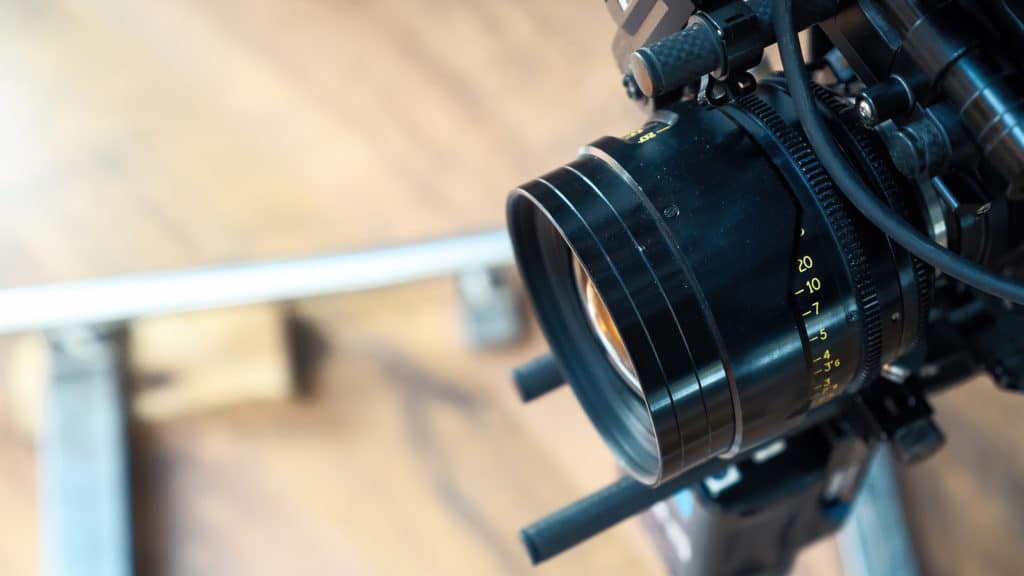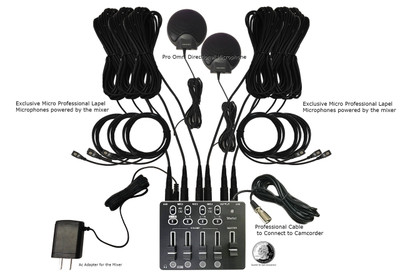The Value of Legal Video Clip Depositions in Modern Legal Solutions: What You Ought to Know
Lawful video depositions have ended up being essential in today's legal landscape. They offer a multidimensional view of witness testaments that typical records merely can not match. By recording both non-verbal and verbal communication, these depositions enhance the total understanding of a witness's reliability. However, the performance of video depositions depends upon various elements, consisting of compliance with legal requirements and ideal practices (legal video depositions). Discovering these components reveals their real value in contemporary legal services
What Are Legal Video Clip Depositions?
Lawful video clip depositions act as a crucial tool in the lawsuits process. They include tape-recording witness statements in a video clip layout, capturing both verbal and non-verbal communication. This method permits lawyers to record the demeanor, expressions, and responses of witnesses, offering a richer context for the statement. Typically performed in a regulated environment, these depositions are led by lawyers who ask inquiries while a court press reporter records the discussion. The resulting video clip can be important for test preparation, as it makes it possible for legal representatives to examine the reputation of witnesses and fine-tune their strategies. In addition, lawful video clip depositions can be utilized in numerous legal contexts, ranging from civil conflicts to criminal instances. The visual and acoustic aspects of video depositions boost the presentation of proof, making it a vital part in the modern-day legal landscape. Generally, they add considerably to the effectiveness and performance of legal procedures.

Benefits of Video Depositions Over Traditional Methods
Video clip depositions use various benefits contrasted to standard methods of taking witness testimonies. One considerable benefit is the capacity to catch both aesthetic and audio aspects, supplying a more detailed record of the witness's declarations. This twin format improves clarity and permits lawyers to reference certain subtleties throughout test preparation. In addition, video depositions help with remote involvement, making it much easier for witnesses that may be not available for in-person appearances as a result of geographical constraints or health issues.Moreover, video clip depositions can accelerate the general deposition process, lowering the time and costs related to travel and logistics. They also boost accessibility, as taped depositions can be quickly shared among lawful groups and referenced any time. This convenience adds to better instance administration and preparation. On the whole, video clip depositions represent a modern-day, effective method to gathering witness testimonies, straightening with the progressing needs of the lawful profession.
The Function of Body Movement and Tone in Testimonies

In legal video clip depositions, body movement and tone play vital functions in sharing a witness's reliability and credibility. Nonverbal signs can offer insights right into a witness's mood, affecting how their statement is perceived. Understanding the effect of these elements is vital for jurors and attorneys alike when reviewing the dependability of a testimony.
Nonverbal Interaction Insights
While spoken interaction is typically highlighted in legal testimonies, nonverbal cues such as body movement and tone play a crucial duty in communicating reliability and feeling. Onlookers of depositions might note that a witness's posture, motions, and faces can substantially influence assumptions of reliability. Regular eye get in touch with might signify self-confidence, while staying clear of look can recommend dishonesty or discomfort. The tone of voice-- its volume, pace, and pitch-- can impart sensations of sincerity or uncertainty. Legal professionals have to be in harmony with these nonverbal signals, as they often give essential context that enhances talked words. Comprehending these nuances can improve the efficiency of depositions and influence the outcome of legal procedures.
Emotional Tone Impact
The emotional tone communicated throughout legal testimonies significantly affects exactly how a witness is regarded. Body movement, singing inflections, and face expressions play essential functions in shaping the story of a testimony. A witness displaying confidence via stable eye contact and a tranquil tone can infuse a feeling of reliability and involvement. Alternatively, indications of anxiousness, such as fidgeting or an unstable voice, may lead to uncertainty regarding their account. The subtleties of emotional expression can influence the interpretation of truths, making it necessary for lawyers to identify these hints. In video depositions, the visual and acoustic parts integrate, emphasizing the value of psychological tone in conveying sincerity and truthfulness within the lawful procedure.
Reliability and Dependability
A crucial consider establishing reputation and dependability during statements lies in the witness's body language and tone of voice. Onlookers frequently rely upon non-verbal hints-- such as eye contact, pose, and gestures-- to evaluate a witness's sincerity. A witness who maintains eye get in touch with and displays open body language may be viewed as even more trustworthy and sincere than one that avoids eye get in touch with or shows up closed off. Furthermore, intonation plays a crucial role; a constant, tranquil tone can strengthen the trustworthiness of the testimony, while changes in pitch or quantity may increase uncertainties. Ultimately, the mix of review body movement and vocal tone substantially influences just how a witness's declarations are received and translated in a lawful context.
Ideal Practices for Performing Video Depositions
Carrying out video depositions requires careful planning and execution to assure a reliable and clear presentation of testimony. Initially, it is very important to select a peaceful, well-lit place to lessen disturbances and safe ideal video quality. The equipment ought to be checked beforehand, consisting of cameras, microphones, and lights, to stay clear of technical issues during the deposition.Next, parties involved should assess the format and procedures beforehand, seeing to it that every person recognizes their functions. The deponent must be informed on the process, consisting of just how to respond clearly and concisely.Additionally, maintaining an expert disposition throughout the session is essential. This consists of avoiding talking over each other and validating that all concerns are routed appropriately. Finally, it is essential to tape the deposition in a style that permits for very easy playback and evaluation, maintaining the honesty of the testimony for future use.
Legal Considerations and Conformity Issues
How do legal considerations and compliance concerns affect the effectiveness of video clip depositions? Lawyers should navigate an intricate landscape of regulations, ensuring that video depositions stick to jurisdictional policies and standards. Conformity with laws worrying personal privacy, approval, and recording techniques is essential. For example, obtaining explicit authorization from all celebrations involved is necessary to prevent legal repercussions.Additionally, the admissibility of video evidence in court can depend upon compliance with step-by-step needs. Guaranteeing that the tools used fulfills technological criteria is also essential, as poor high quality can weaken the deposition's reliability.Moreover, attorneys have to recognize any type of certain state regulations that regulate video depositions, as these can differ greatly. Failure to address these considerations can not just jeopardize the honesty of the deposition yet also affect the general instance technique, eventually impacting the customer's lawful end results.
How Video Depositions Impact Court Perception
While video depositions can function as powerful devices in lawful proceedings, their impact on jury understanding is substantial. The auditory and visual components of video recordings supply jurors with a more extensive understanding of witness temperament, integrity, and emotional reactions. This multimedia method can improve the jurors' capacity to assess the dependability of testimony contrasted to traditional text-based transcripts.Moreover, video clip depositions allow jurors to observe body movement, intonation, and faces, every one of which can impact their interpretation of the witness's declarations. The existence of a witness on screen can humanize them, promoting compassion and connection, which might persuade jurors' point of views. On the other hand, a witness who shows up incredibly elusive or unreliable on video clip may lead to adverse understandings that affect a court's choice. Eventually, the vibrant nature of video depositions plays an important role in forming exactly how jurors interpret evidence and reach their verdicts.
The Future of Video Clip Depositions in Legal Method
As innovations in modern technology proceed to reshape the lawful landscape, the future of video clip depositions is positioned for significant development. Advancements such additional info as expert system, virtual page truth, and enhanced video clip conferencing devices are anticipated to streamline the deposition procedure and enhance access. Attorneys may use AI-driven analytics to examine witness reputation and case toughness more effectively.Moreover, the assimilation of virtual reality can allow courts to experience immersive simulations of depositions, providing deeper context and understanding. In addition, the fad toward remote depositions is most likely to persist, offering greater adaptability for attorneys and clients alike.As remote work comes to be increasingly stabilized, video clip depositions will likely end up being typical technique, reducing prices and time restraints connected with conventional methods. On the whole, these technological improvements promise to boost the performance, performance, and ease of access of video depositions in legal technique, inevitably changing just how lawyers plan for test.
Regularly Asked Inquiries
Just How Much Do Lawful Video Clip Depositions Typically Cost?

Can Video Depositions Be Utilized in Any Kind Of Type of Case?
Video clip depositions can be made use of in various kinds of instances, including civil, criminal, and household regulation. Their flexibility enables lawyers to existing witness testaments properly, adapting to the particular demands of various legal circumstances.
What Devices Is Required for a Video Deposition?
To carry out a video clip deposition, important equipment consists of a top quality electronic camera, microphone, illumination, and a dependable recording gadget. Additionally, a computer with modifying software program might be required for post-production and formatting the final video.
For how long Does a Typical Video Deposition Last?
A common video deposition lasts between two to four hours, depending upon the complexity of the situation and the number of inquiries posed. Prolonged sessions may happen, however breaks are typically integrated for individual comfort.

Are Video Clip Depositions Admissible in Court?
Video depositions are usually admissible in court, offered they abide by legal standards and regulations of evidence. Their use boosts clarity and preserves witness statement, assisting in the judicial process throughout hearings and trials. Lawful video clip depositions have actually ended up being important in today's legal landscape. Additionally, lawful video depositions can be utilized in different lawful contexts, varying from civil conflicts to criminal situations. Furthermore, video depositions help with remote participation, making it less complicated for witnesses that might be inaccessible for in-person appearances due to geographical restraints or wellness issues.Moreover, video clip depositions can expedite the overall deposition procedure, decreasing the time and costs associated with travel and logistics. Guaranteeing that the devices utilized meets technical requirements is likewise crucial, as inadequate top quality can threaten the deposition's reliability.Moreover, lawyers must be aware of any particular state regulations that govern video depositions, as these can vary substantially. Furthermore, the pattern towards remote depositions is likely to persist, providing greater versatility for clients and attorneys alike.As remote work comes to be significantly normalized, video clip depositions will likely become conventional method, lowering expenses and time restraints connected with standard approaches.